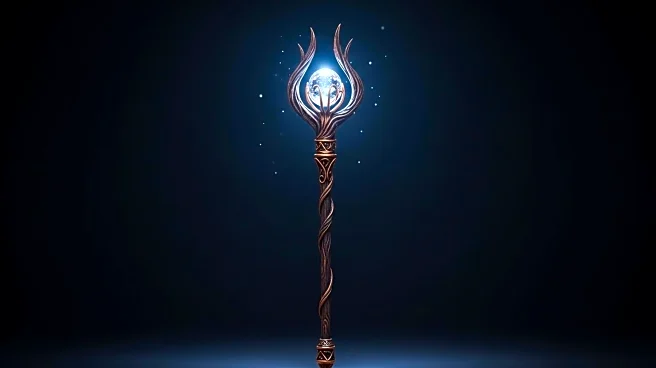What's Happening?
Jude Law stars as Vladimir Putin in the film 'The Wizard of the Kremlin,' directed by Olivier Assayas. The film, which premiered at the Venice Film Festival, is adapted from Giuliano da Empoli's book and explores Putin's rise to power in post-Soviet Russia. Law, alongside Paul Dano who plays Vadim Baranov, a fictional character inspired by Vladislav Sourkov, delves into the transformation of politics during Putin's ascent. The film aims to provide a nuanced portrayal rather than seeking controversy, focusing on the broader political narrative. The cast includes Alicia Vikander, Tom Sturridge, and Jeffrey Wright.
Why It's Important?
The film's release comes at a time of heightened geopolitical tensions, particularly with Russia's ongoing invasion of Ukraine. It serves as a cautionary tale about the evolution of modern politics and the rise of authoritarian leaders. The narrative reflects on the global implications of political transformations, drawing parallels between Russian and American political histories. The film's portrayal of Putin and the political landscape offers insights into the complexities of leadership and governance, resonating with current international dynamics.
What's Next?
The film's debut may spark discussions on the portrayal of political figures in media and its impact on public perception. As geopolitical tensions persist, the film could influence dialogues on authoritarianism and democracy. Stakeholders in the film industry and political analysts may engage in debates about the ethical responsibilities of depicting real-life leaders and events. The film's reception could also affect future projects exploring similar themes.
Beyond the Headlines
The film raises questions about the ethical dimensions of portraying controversial figures and the role of cinema in shaping political discourse. It challenges viewers to reflect on the nature of power and the responsibilities of leaders. The narrative encourages audiences to consider the broader implications of political transformations and the potential for societal change.









